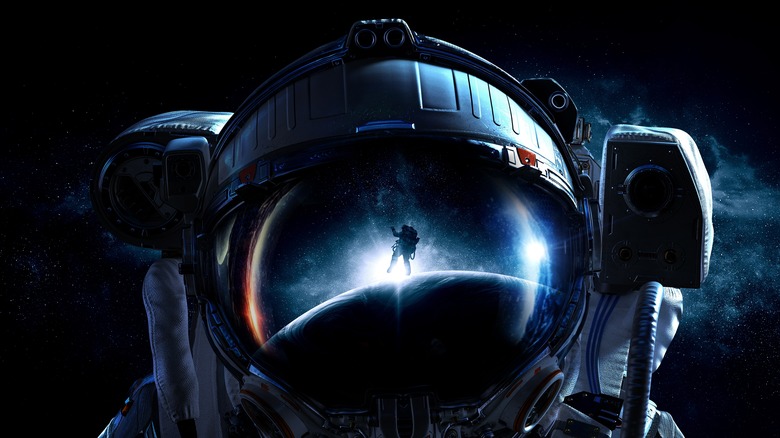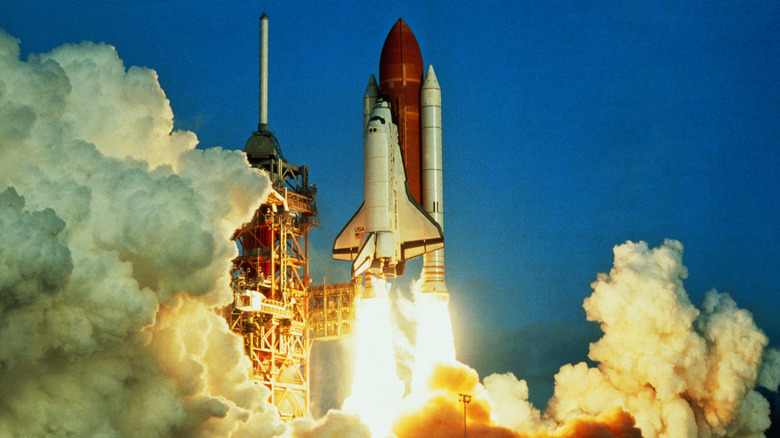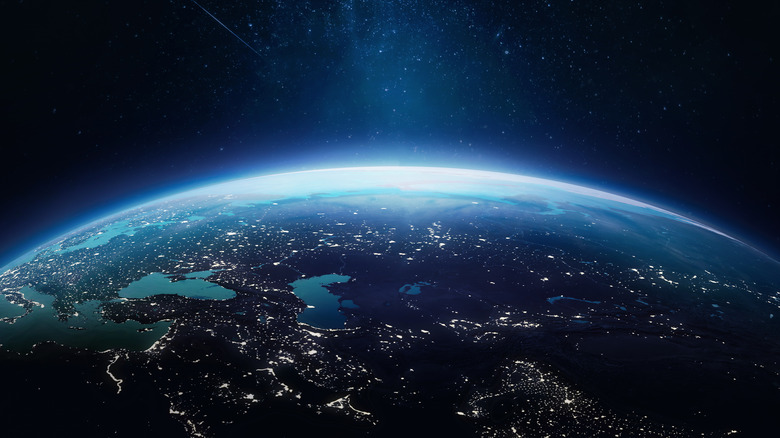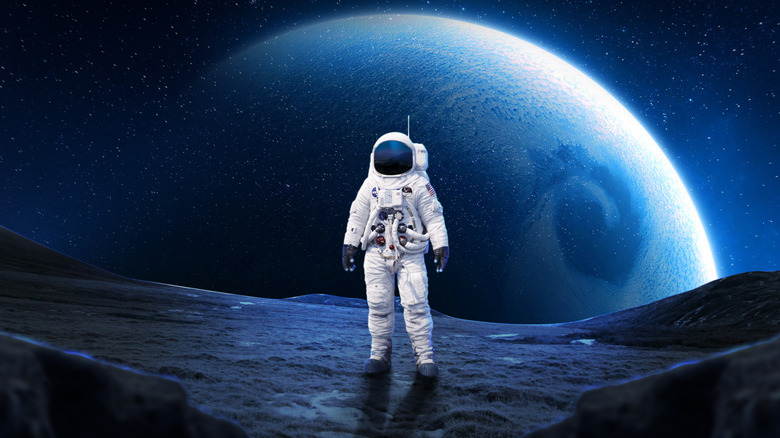Astronauts Are Mutating. Here's Why
There are two things about which we humans, famously, have much, much more to learn: the depths of space and the depths of the oceans. There are a lot of good reasons for this, but they generally boil down to one thing: We like to take a hands-on approach to science wherever we can, and it's either impossible or far too expensive to reach these places.
In October 2010, Guinness World Records' award for the deepest point in the sea went to the Challenger Deep. This part of the famed Mariana Trench was measured, at the time, at 6.79 miles deep (10,935 meters). As the outlet reports, measuring techniques have constantly improved and this number has had to be revised. In short, enterprising experts continue to learn more and more about the most inhospitable environments.
Our knowledge of the vast expanse of space that surrounds us, of course, has advanced in a myriad of ways thanks to the hands-on experience of astronauts. The majority of us can only dream of traveling out into the wide, remarkable world beyond our own, though many may be happy keeping our feet planted on the Earth, not wanting to take any chances ending up free-floating in space like Sandra Bullock's character in the iconic movie, "Gravity." Needless to say, simple survival requires all kinds of cutting-edge equipment, but it seems that returning astronauts' very DNA is changed by their experiences in space.
The wonders (and dangers) of space travel
That dark, mysterious realm is visited only by the privileged few. What a privilege it is, too. As astronaut Reid Wiseman put it (via ScienceAtNASA on YouTube), "when you're launching into space, when the engine cuts out and you get to look back at Earth ... absolutely every sacrifice is worth it, every dream is worth it ... every bit of it is worth it."
The sacrifice of which Wiseman speaks, however, is all too real too. In a 2011 NASA interview, astronaut Charles J. Camarda was more than frank about everything else that becoming an astronaut encompasses. "Let me tell you what it is not like to be an astronaut," he said. "It is not all glory, games, fun, and adventure." With the long, grueling training, the time-consuming study, and the expertise required to be in with a chance in the first place, it may be a very different experience to the one many young would-be astronauts envisaged.
Then, of course, there's the reason for all the safety training: Space travel is, by its very nature, potentially very dangerous indeed. Camarda highlighted this tragic fact too, somberly noting, "I was training in Russia when we got the call that Space Shuttle Columbia broke up over Texas during Earth entry and the crew was lost. I lost seven friends."
On top of this, space travel has a physical effect on astronauts' bodies. It appears to mutate their cells. Here's how.
The effects on an astronaut's DNA
The August 2022 study "Retrospective analysis of somatic mutations and clonal hematopoiesis in astronauts," from Agnieszka Brojakowska et al (via Communications Biology), gives us an illuminating and rather alarming glimpse into this phenomenon. The researchers reportedly "obtained de-identified whole blood samples from 14 astronauts who flew relatively short Space Shuttle missions (median 12 days) between 1998–2001." Two decades of storage in freezing temperatures later, these blood samples provided some fascinating insights.
The blood samples used here, the study goes on, were taken three days after the astronauts' return to space. The astronauts reportedly had not been exposed to any form of radiation therapy, but their DNA seemed to have some traits that had a tendency to appear after such. "The DDR gene TP53 was the most frequently mutated in this astronaut cohort (median age 44 ...)," the study stated, "reflecting a potential difference compared to the civilian population. Somatic TP53 mutations are uncommon in patients without a history of cancer therapy."
Every astronaut involved in the study, Newswise went on, displayed mutations in their DNA. Specifically, in the hematopoietic stem cells, which are crucial in sustaining the blood which has provided this fascinating insight. According to the outlet, these effects are more common in those who have been subject to radiation, such as that an astronaut may be subject to out there in space.
How are NASA protecting their brave explorers?
Newswise explains that these mutations are connected with higher chances of contracting cancer of the blood, as well as heart conditions. Per NASA, this space radiation is a unique danger faced by space farers, because the rest of us here on Earth (and even those on the International Space Station) are protected by the planet's atmosphere itself.
It certainly isn't a danger NASA is taking lightly. As the organization's own Ruthan Lewis stated in 2019, "radiation is always present, whether you're in orbit, in transit, or on a planetary surface ... from mitigation techniques to protection and enclosures, we're considering this in every environment astronauts will be in."
NASA's own Human Research Program studies the physical effects space travel has (and theoretically will or can have) on the human body. Monitoring the effects of such hazards as gravity fields will help to pave the way for safe possible trips to Mars and even beyond. These bold pioneers and their efforts may well be pivotal to the survival of the human race, so it's vital that they are protected along the way.



